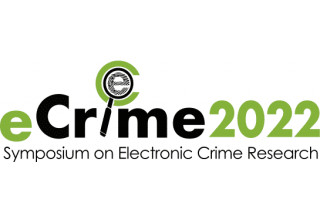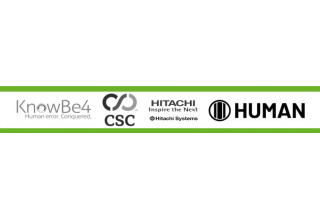APWG's eCrime 2022 Examines the Edge of the Cybercrime Experience With Pioneering Researchers and Swashbuckling Cybercrime Fighters

CAMBRIDGE, Mass., November 30, 2022 (Newswire.com) - Register now for the world's only conference dedicated exclusively to cybercrime-related research — now in its 17th year as a publishing peer-reviewed conference — this year focusing on: ransomware, cybercrime public and industry policy, scam marketplaces and behavioral aspects of cybercrime.
The 2022 Symposium on Electronic Crime Research (APWG eCrime) consists of a three-day program comprised of keynote presentations and technical and practical sessions.
The registration link is here: https://apwg.org/event/ecrime2022/.
Discounts are available to NGOs, university faculty and students, law enforcement officials, government personnel and employees of multilateral and trade organizations. Contact apwg_events@apwg.org for details.
eCrime 2022 General Chair Dr. Guy-Vincent Jourdan of the University of Ottawa said, "We will hear about vulnerabilities in attack code; we will learn how to automatically gather evidence from the dark web; we will discuss the motivations of ransomware creators, how scammers reach out to their victims in the world of cryptocurrencies. We will also discuss about user perceptions of social engineering attacks, and the role of trust in underground forums criminals, and much more."
This year, major topics of examination include:
- Ransomware's Growing Extortion Racket
- Cybercrime Policy Formation Regarding DNS Abuse and Cryptocurrency Exchanges
- Scam Marketplaces and Scammers' Scamware
- Behavioral Aspects of Cybercrime — and Cybercrime Suppression
The full symposium agenda is here: https://apwg.org/event/ecrime2022/.
A SHORT HISTORY OF APWG ECRIME
Academic and industrial researchers appeared at the APWG's door almost at the very genesis of the APWG, delineating phishing's contemporary nature, speculating on probable evolutionary trajectories — and proposing research that needed APWG's data corpora to shape their theses and inform their research. The APWG established APWG eCrime to honor that contribution, foster its spirit — and to organize the creative energy of researchers that would eventually overwhelm the APWG's other conference venues.
APWG organized the initial eCrime Researchers Summit in Orlando in early Spring 2006 in collaboration with Florida State University; the National Center for Forensic Sciences at University of Central Florida; and the Florida Department of Law Enforcement, recognizing the interest in ecrime research by both researchers and within the law enforcement community. Secretary General Cassidy authored the initial CFP. FSU computer science researcher Judi Mulholland organized and managed the peer-review committee and edited the proceedings for publication by Taylor & Francis.
Since the first eCrime conference in 2006, the APWG eCrime management team and submission review committee — drawing from academic and industrial researchers from across the world — has produced the conference with academic conference partners every year. Today, APWG eCrime is supported by the IEEE Standards Association which acts as Technical Sponsor to the conference and publishes the conferences proceedings in the IEEE XPlore Digital Library.
APWG eCrime will continue to be a collaborative project of its sponsoring institutions, its chairs, committee members, reviewers and, of course, the researchers who share their findings. The APWG gives its thanks to all who are making eCrime the keystone event in the field and to all of those who have helped establish and maintain it.
Source: APWG


